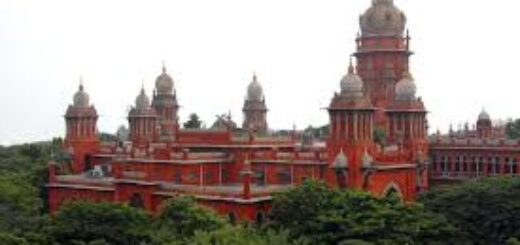Reasons Are Essential For Every Order; A Show Cause Notice To Employees Must Clearly State The Reasons For Which The Authority Plans To Act: Supreme Court.

The Supreme Court has stated that a show cause notice given to an employee must clearly outline the reasons for the actions the administrative or quasi-judicial authority plans to take, as these reasons are essential to any order. The Court overturned the Calcutta High Court’s decision that had supported the termination of the Appellant, who worked as an Ophthalmic Assistant in West Bengal’s Health Department. The Court reinstated the ruling of the West Bengal State Administrative Tribunal, which found that the termination was invalid because it did not follow natural justice principles and did not give the employee a chance to present his case. Justices J.K. Maheshwari and R. Mahadevan emphasized that reasons are crucial for every order, and every notice must detail the grounds for action. If any documents are used in the inquiry, they must be provided to the employee so that a proper response can be made. Not providing these documents would render the proceedings arbitrary and violate natural justice principles. Additionally, the affected person must be given a chance for a personal hearing before any negative decision is made.
Advocate Raj Kumar Gupta represented the Appellant, while Senior Advocate Biswajit Deb represented the Respondents. The Appellant moved to India from East Pakistan (now Bangladesh) with his father in 1969 and was appointed as an Ophthalmic Assistant by the Director of Health Services in West Bengal in 1985, based on positive medical and police verification reports. After 25 years of service without issues, a police verification report labeled him unsuitable for employment, resulting in his termination. The Appellant contested this decision at the Tribunal, which ruled in his favor. However, the High Court overturned the Tribunal’s decision and upheld the termination, leading to the current appeal. It was claimed that the Appellant was not informed about the reasons for being considered “unsuitable” and did not receive a copy of the police verification report.
The Supreme Court determined that the termination order against the Appellant was “arbitrary, illegal, and violated the principles of natural justice, making it unsustainable.” The Court referenced its earlier ruling in S. Govindaraju v. Karnataka State Road Transport Corporation (1986), stating, “Providing an opportunity for explanation is the minimum requirement of natural justice. Before terminating an employee’s services, which affects their right to future employment, the employee must be given a chance to explain. The Appellant was not given this opportunity before the termination order was issued; therefore, the order is null and void as it contradicts the principles of natural justice.”
The Court pointed out that the Appellant was not given a chance for a personal hearing before the termination order was made. The Bench stated that “every administrative or quasi-judicial order must include reasons. These reasons help ensure that the authority has considered the facts and the law, and they also provide a basis for the affected party to challenge the order legally. Without reasons, it becomes difficult for judicial authorities to verify the order’s correctness or to perform their judicial review.”
As a result, the Court concluded, “The High Court mistakenly accepted the writ petition from the State and overturned the Tribunal’s order, claiming that the authorities acted correctly by issuing a show cause notice and allowing the Appellant to respond, which follows the principles of natural justice. Therefore, we decide to overturn the High Court’s order and reinstate the Tribunal’s order.” Thus, the Supreme Court approved the Appeal.
Cause Title: Basudev Dutta v. State of West Bengal & Ors. (Neutral Citation: 2024 INSC 940)
Appearance:
Appellant: Advocates Raj Kumar Gupta and Mayank Agrahari; AOR Shekhar Kumar
Respondents: Senior Advocate Biswajit Deb; Advocate Shwetank Singh; AOR Anando Mukherjee








